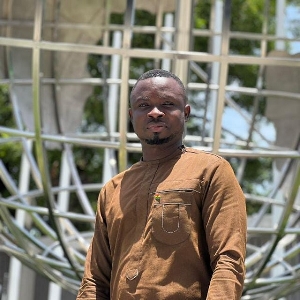Religion plays an essential role in African society, shaping its traditions, beliefs, and cultural practices. Africa is home to various religious landscapes, encompassing indigenous traditions, Christianity, Islam, and various other faiths. Each religion brings its unique values and perspectives, allowing Africans to find common ground and work towards progress and development. From the ancient wisdom of ancestral practices to the powerful messages of
Christianity and Islam, religion permeate every aspect of African life, shaping culture, guiding morals, and inspiring hope for a brighter future.
As a haven of religious diversity, the African continent is presented with a unique opportunity to celebrate the respective religious heritages while fostering a sense of unity, love, and compassion among all people.
African traditional religion predates the arrival of external faiths, rooted in the continent's ancient traditions. With unique practices and beliefs across ethnic groups, African traditional religion emphasizes the interconnectedness of nature, the honoring of ancestors, and the worship of a Supreme Creator. These indigenous faiths underline communal harmony and a deep respect for the natural world.
The values of African traditional religions can provide valuable insights for sustainable development. Ancestral reverence for nature, for example, can inspire responsible environmental practices and conservation efforts. During the colonial era, Africa experienced the introduction of Christianity and Islam. Christian missionaries and Arab traders brought these religions, infusing African society with their own unique cultures. Christianity centers around the teachings of Jesus Christ, who preached ideas of love, peace, and compassion.
The Bible teaches followers to give to the needy and to love their neighbors as they love themselves. Similarly, Islam, rooted in principles of peace and
harmony, promotes values of compassion and generosity, even practicing loans without interest. Both religions carry essential faith-based principles that can play a crucial role in Africa's development.
Though Christianity and Islam may have distinct theological differences, there are shared values that can bridge divisions and promote unity among believers. Recognizing the presence of a Divine creator (God/Allah) who has created everything in the universe to coexist peacefully serves as a common foundation for religious coexistence in Africa. By living out these shared values such as love, compassion, peace, and respect, Africans can demonstrate the unity that can drive Africa's progress and prosperity.
Amidst the growing prevalence of evil in the world, Africa's religious diversity has become a powerful force in combating it. The coming together of distinct religious beliefs provides a collective resource to confront and push back against evil with goodness. Instead of allowing interreligious conflicts to divide us, African religious believers can view our diversity as an asset,
enabling us to stand united against forces such as injustice, inequality, hatred, and greed.
By fostering unity, the practice of love, and compassion, Africans can demonstrate a powerful response to the world's growing evil, working towards peace, justice, and prosperity for all. To honor our relationship with our creator, Africans can personify the values of love, togetherness, and compassion, promoting unity and progress across the continent. Irrespective of
our religious differences, believers from all faiths can come together to prioritize the welfare and upliftment of all Africans.
Through collaborative efforts encompassing areas such as education, healthcare, poverty alleviation, environmental protection, and economic empowerment, Africans can showcase the transformative power of faith in action. By recognizing the need to counteract evil with goodness, African religious believers can channel their faith towards positive change, ensuring that their diverse religious traditions are united in pursuing a common goal: the betterment of Africa and the world.
It's crucial to note that despite our diversity, interfaith dialogue and cooperation increasingly nurture unity and comprehension. Initiatives like the Interfaith Dialogue Forum for Peace in Africa assemble religious leaders continent-wide to address common challenges and foster peaceful coexistence.
Religion holds an important place in the hearts and minds of Africans, shaping our traditions, faith, and sense of community. With the diverse religious landscape, including traditional African religions, Christianity, Islam, and other faiths, Africans have the opportunity to find commonalities and channel their faith towards Africa's progress and prosperity.
By embracing unity and recognizing the divine presence within all of creation, Africans can honor our God by working together to improve the continent. Through shared values and collective efforts, Africa can rise above challenges and strive for a future where faith becomes a catalyst for a harmonious and prosperous continent.
Opinions of Saturday, 3 February 2024
Columnist: Dwomoh-Doyen Benjamin















